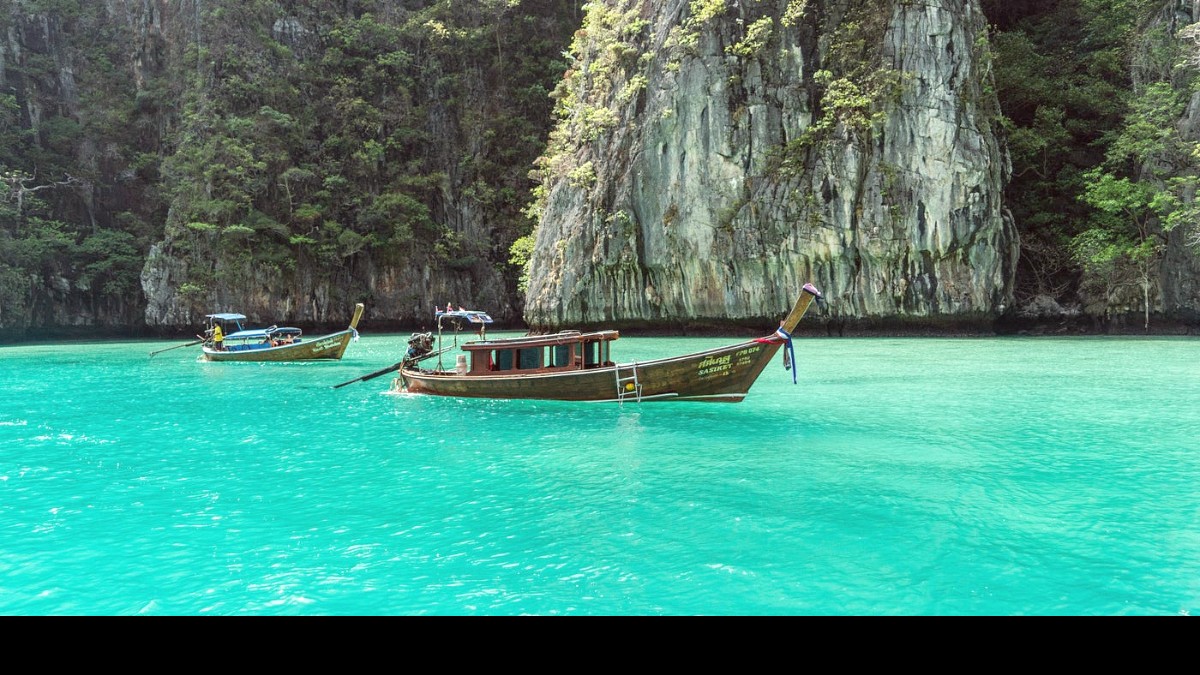
Mae Hong Son Province, Thailand
The Dry Season (Cool Season) spans November to February. Temperatures during this period range from 15-28°C (59-82°F). Humidity levels are low. Mornings and evenings offer the coolest temperatures, occasionally calling for a Light jacket. This season presents clear skies and comfortable daytime temperatures, making it ideal for outdoor activities.
The Hot Season arrives from March to May. Temperatures climb significantly, ranging from 25-40°C (77-104°F). High heat and increasing humidity define this period. This season frequently coincides with the "burning season," lasting from late February to April. During this time, agricultural burning in the region causes poor air quality and significant haze. The Rainy Season (Green Season) spans June to October. Average temperatures settle between 20-30°C (68-86°F). Humidity levels are high. Frequent, heavy rainfall occurs, usually in the afternoons. The landscape becomes very lush and green during these months, and waterfalls reach their fullest flow.
Different activities thrive in different seasons.
Motorbiking and hiking are best from November to February for optimal weather and road conditions. Waterfalls and lush scenery are most striking from June to October (rainy season), though caution with accessibility is advised. Hot springs welcome visitors year-round, as their warmth provides comfort regardless of the outside temperature. White water rafting is best during the rainy season when water levels are high.
Air Quality Concern
Fewer tourists, lower prices.
Very hot, poor air quality, haze.
Lush Landscape
greenery, full waterfalls, lowest prices.
Heavy rain, road challenges, more mosquitoes.
Most Popular
Pleasant weather, clear skies, ideal for outdoor pursuits.
Crowds, higher prices, booking ahead often called for.
Monsoons happen during the rainy season. Heavy rainfall can cause localized flooding and mudslides, impacting road conditions and travel times.
Rivers and waterfalls display their fullest flow during the rainy season. This also means stronger currents and potentially less accessible paths.
Late February to April brings severe air pollution from agricultural burning.
The "burning season" can cause significant haze and smoke, especially in March and April.
Sensitive individuals may experience respiratory issues due to air quality during burning season.
Rainy season brings the potential for localized flooding and mudslides on roads.
Some paths to waterfalls or other sites may be less accessible due to rain and strong currents.
Thailand presents various entry options for different nationalities.
Several paths exist for gaining entry into Thailand, based on your nationality and duration of stay.
Ensure you have the necessary papers ready for a smooth entry process.
Pai presents options for various travel budgets, from economical to luxury.
Pai presents options for various travel budgets.
Daily average estimates, excluding international flights, give a clear picture of expenses for different travel styles.
From budget-friendly options to luxury experiences, Pai accommodates all preferences.
Prices per night range from economical dorms to luxury resorts.
Hostel Dorm: 150-400 THB
Resort/Luxury Hotel: 1500-5000+ THB
Enjoy affordable street food or choose mid-range to upscale dining experiences.
Street Food: 30-80 THB
Upscale Dining: 400-800+ THB
Scooter rentals offer an economical way to explore the area.
Scooter Rental: 150-250 THB/day
Private Taxi: 2,000-3,000+ THB (from CNX)
| Attraction | Cost | Notes |
|---|---|---|
| Pai Canyon | Free | Popular for sunset views. |
| Tha Pai Hot Spring | 300-400 THB | National Park entrance fee. |
| Tham Lod Cave | 250-450 THB | Per group (plus guide tip) for bamboo raft. |
Your health and safety in Pai are important. This section covers various aspects from vaccinations to emergency contacts.
MMR, Tdap, Polio. Consult a travel clinic 4-6 weeks before departure.
Widely recommended due to food and water exposure.
May be recommended based on activities and stay duration. LifeStraw helps with water filtration.
Pai Hospital offers basic medical services. For serious emergencies, transfer to larger hospitals in Chiang Mai. Pharmacies operate in Pai town.
Tap water is not safe for drinking. Always use Bottled water. Many places offer water refills. Street food is generally safe, particularly at the Walking Street, where high turnover often brings freshness. Choose vendors with good hygiene and busy stalls. Cooked food is safer than raw. Consider Adventure Medical Kits for supplies.
Pai generally maintains a low crime rate. Petty theft reports occasionally surface, concerning items taken from scooter baskets or guesthouse rooms if not secured. Use common sense: hotel safes, locked doors, and no unattended valuables. Road safety is the main concern, especially for scooters. The road to Pai (Route 1095) presents many curves and can be challenging. Drive carefully.
Image: A busy street scene in Pai town, with people walking and a scooter parked.
Drink only bottled water or water from sealed containers. Avoid ice unless certain of its purity. Eat hot, freshly cooked food. A Traveler's diarrhea medication kit is advisable.
Use Insect repellent with DEET or Picaridin, especially at dawn and dusk. Wear long sleeves and pants when possible. Stay in accommodations with mosquito nets.
Stay hydrated. Wear Sunscreen (SPF 30+), a Wide-brimmed hat, and Sunglasses. Avoid peak sun hours.
Scooter accidents frequently occur in Pai. Extreme caution is paramount.
Pai can experience seasonal natural phenomena. Be prepared for any eventuality.
During the rainy season (June-October), heavy rainfall causes localized flooding, especially near the Pai River. Roads become impassable.
From late February to April, agricultural burning leads to severe air pollution (haze/smoke). This can cause respiratory issues for some individuals. Stay informed about air quality reports. For personal security, Pacsafe offers anti-theft items.
Tourist Police: 1155 (English-speaking). General Emergency (Police): 191. Ambulance/Medical Emergency: 1669. Fire: 199. Keep your country's Embassy/Consulate contact details readily available.